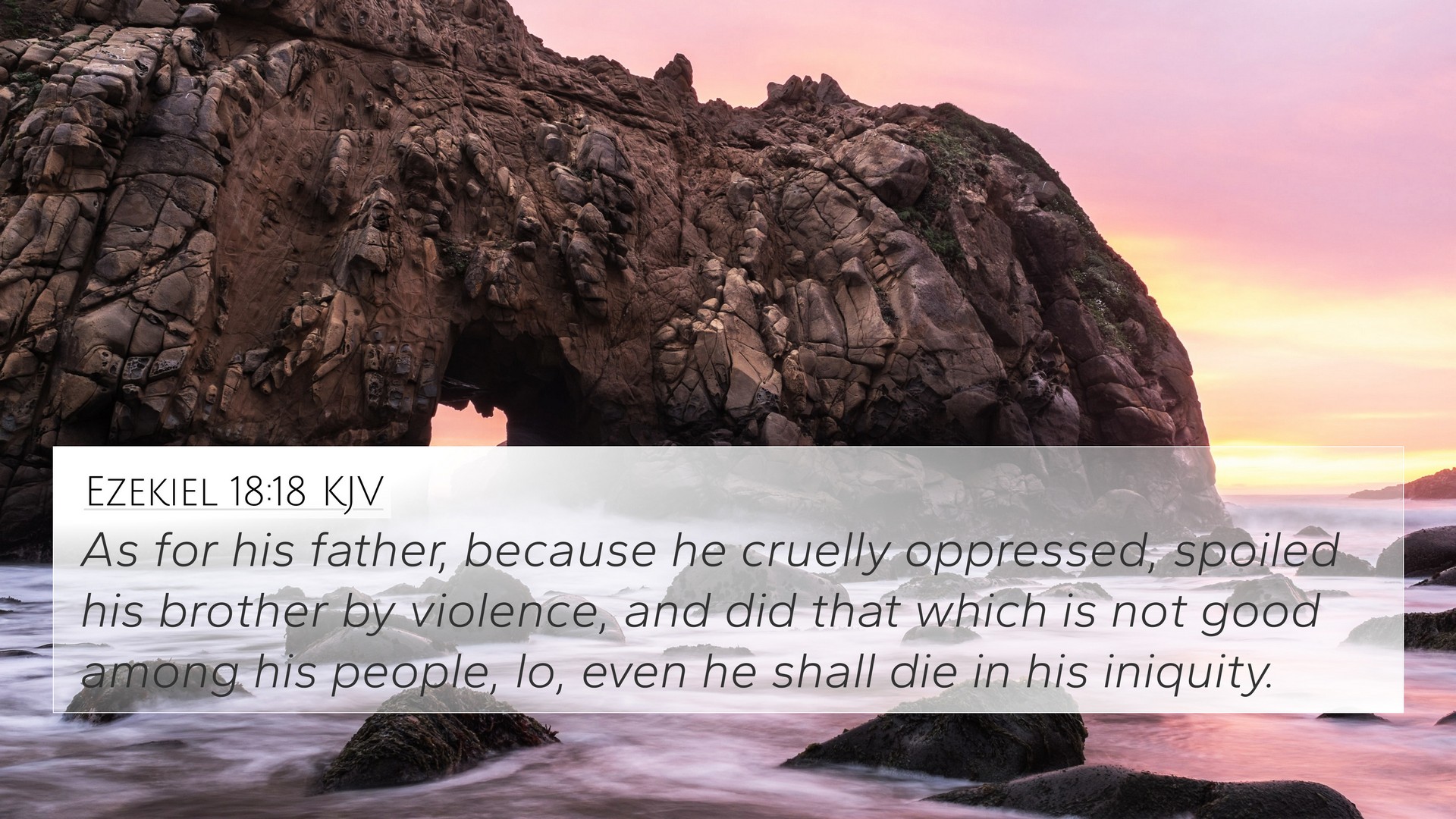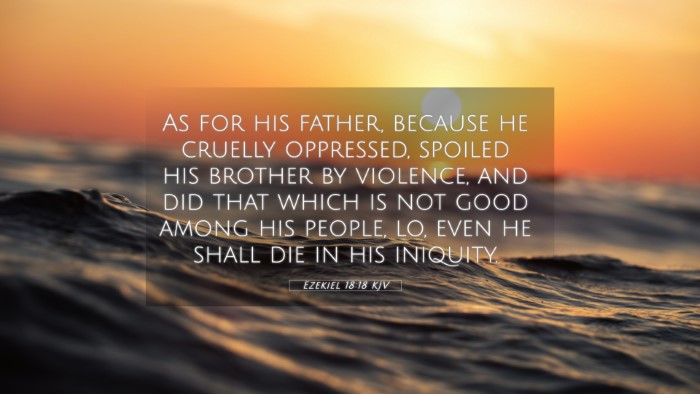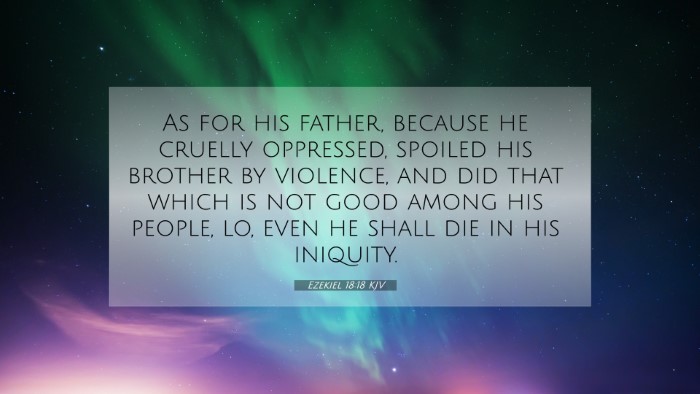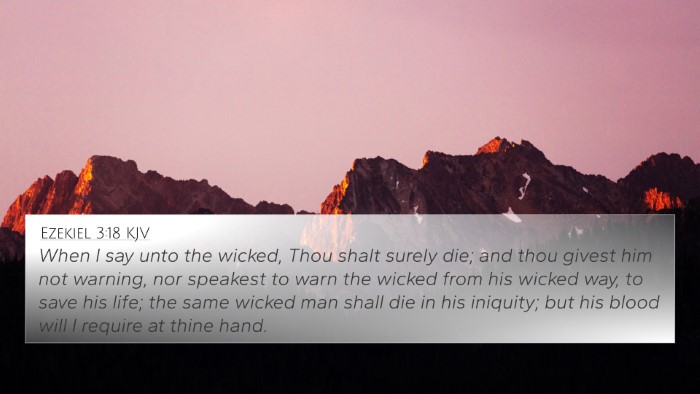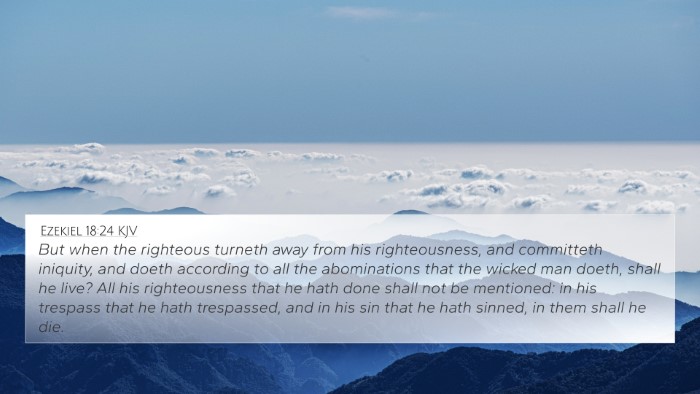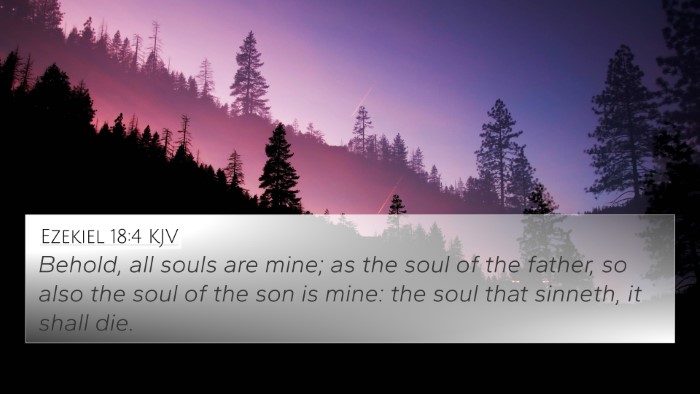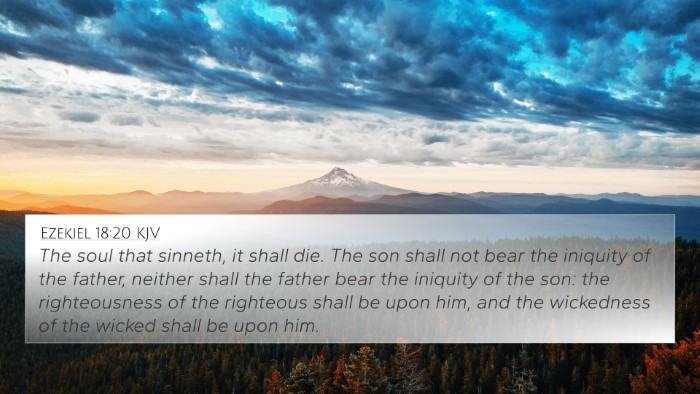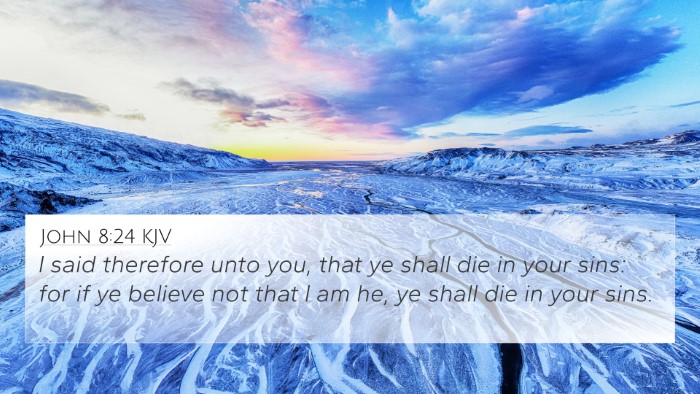Ezekiel 18:18 - Summary and Interpretation
Bible Verse: "As for his father, because he cruelly oppressed, robbed his brother, and did what is not good among his people, behold, even he shall die in his iniquity."
Contextual Overview
The book of Ezekiel contains messages of judgment, restoration, and the nature of individual responsibility before God. Ezekiel 18 is particularly focused on the theme of personal accountability for sin, emphasizing that individuals are judged based on their own actions rather than those of their ancestors. This passage serves as both a warning and a reassurance that God is just.
Meaning and Interpretation
The key insights from public domain commentaries are as follows:
- Matthew Henry: Henry notes the importance of heredity in biblical times but emphasizes that each person is responsible for their own sins. The reference to a father’s iniquity highlights the consequences of sinful behavior but asserts that each is judged accordingly. The moral law must govern one's actions rather than the actions of others.
- Albert Barnes: Barnes provides an understanding of the Hebrew terms used in this verse, explaining that the "cruel oppression" signifies an act contrary to God’s commandments. This reflects the character of a person whose actions, when observed, lead to a just punishment or death in iniquity, affirming God’s righteous judgment.
- Adam Clarke: Clarke discusses the implications of generational sin, indicating that while a father’s actions may lead to a certain familial reputation, each individual is ultimately accountable for their own deeds. Clarke emphasizes the importance of righteousness and the theme of repentance as presented in Ezekiel.
Thematic Connections and Cross-References
This verse can be cross-referenced with several other biblical texts that deal with individual accountability and the nature of sin:
- Deuteronomy 24:16: "Fathers shall not be put to death for their children, nor shall children be put to death for their fathers; a person shall be put to death for his own sin."
- Jeremiah 31:30: "But everyone shall die for his own iniquity; each man who eats the sour grapes, his teeth shall be set on edge."
- Romans 14:12: "So then each of us will give an account of himself to God."
- Galatians 6:5: "For each will have to bear his own load."
- Ezekiel 18:20: "The soul who sins shall die. The son shall not suffer for the iniquity of the father, nor the father suffer for the iniquity of the son. The righteousness of the righteous shall be upon himself, and the wickedness of the wicked shall be upon himself."
- Matthew 12:36: "I tell you, on the day of judgment people will give account for every careless word they speak."
- 1 Peter 1:17: "And if you call on him as Father who judges impartially according to each one’s deeds, conduct yourselves with fear throughout the time of your exile."
Application and Reflection
This verse prompts us to reflect on our personal lives, recognizing that we are each accountable for our own actions. Understanding the gravity of individual responsibility can lead to a deeper commitment to righteous living. As one studies these connections between Bible verses, they can gain a clearer perspective on God’s justice and mercy.
Concluding Thoughts
In conclusion, Ezekiel 18:18 challenges believers to pursue justice and righteousness in their own lives while acknowledging the significant biblical principle of personal accountability. The rich cross-references within Scripture enhance our understanding of God’s character and the consistent message of divine justice throughout the Bible.
